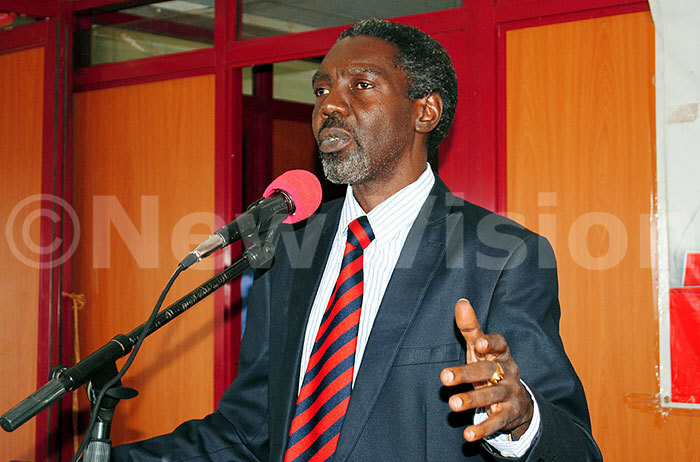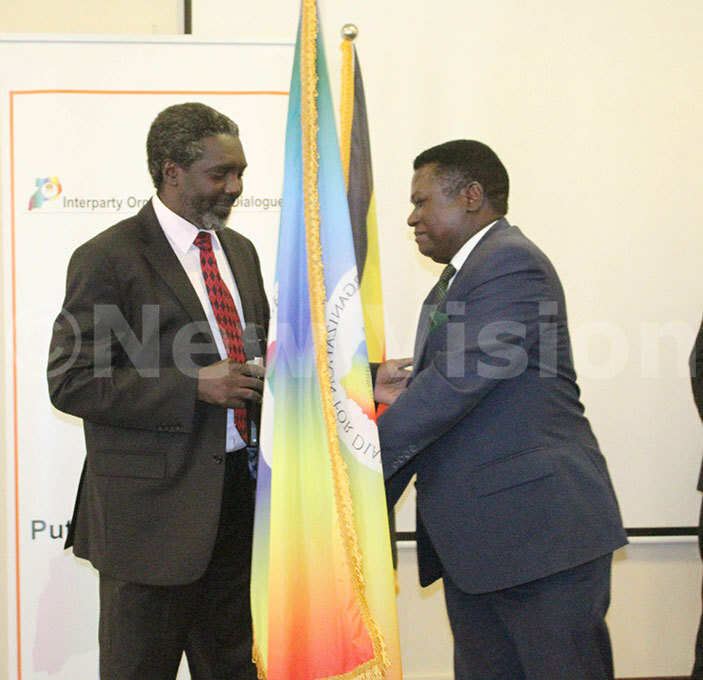What is the future of Uganda's oldest parties?
Their recovery will depend on the quality of leadership they get.
POLITICS|POLITICAL PARTIES|UPC|DP
The future of Uganda's two independence political parties - the Democratic Party and the Uganda People's Congress (UPC) - is at stake.
The parties have stagnated with dismal representation in Parliament since the country returned to multiparty democracy in 2006.
Out of the 458 MPs, UPC, which was in power twice, has seven seats, which represents a dismal percentage of 1.5%.
Besides, the party seems to have lost its national outlook since all its seven MPs are from the Lango sub-region.
The region is the birthplace of the party's founding leader, Dr Milton Obote. The Democratic Party (DP), which won the 1961 preindependence elections, the first direct elections to the Legislative Council, is no different from UPC.
DP, which has had 15 MPs, or 3.27% of the total, is now at its lowest ever, with only four MPs. Eleven of the party's legislators crossed to the newly-rebranded National Unity Platform (NUP).
The MPs who crossed to NUP blamed DP leader Norbert Mao for failing the party. They accuse him of cohabiting with the ruling National Resistance Movement (NRM), an accusation which Mao denies.
Until recently, when the party got some two MPs from the Acholi region, all the party's MPs in the previous general elections have been coming from Buganda region. Last week, UPC said it will not field a presidential candidate in the 2021 presidential election.
The party, under the same leadership of Jimmy Akena, did not field a presidential candidate in the 2016 general election.
Likewise, DP under the same leadership of Mao, did not field a presidential candidate in 2016. Mao's decision not to contest in 2016 was most likely informed by his poor performance in the 2011 presidential election in which he got a dismal 1.8%.

Commenting on the state of affairs in DP and UPC, Makerere University political history lecturer Prof. Ndebesa Mwambutsya said: "All independence parties in Africa, except those that are still in power, like Chama Cha Mapinduzi of Tanzania and the African National Congress of South Africa, have fizzled out. It is not, therefore, surprising to see that the situation for DP and UPC keeps worsening."
Mwambutsya argues that in Africa, people mostly join political parties for convenience. It is to get temporary gains and not on the basis of values and ideology.
"When a party in Africa remains outside power for a long time, it keeps declining and loses members to parties, which appear to have potential to take them to power. The excitement you see about many people joining NUP is because they see it has potential to enable them win political seats," he said.
Basing on studies he has made, Mwambutsya predicts that UPC and DP will completely collapse soon, but they stand a chance of reincarnating into new parties.
"Following the mass exodus of DP members into NUP, it can arguably be said that DP metamorphosed into NUP. DP is reorganising itself under NUP. NUP will easily take on all the values and ideology of DP," Prof. Mwambutsya said.
Dr Samuel Kazibwe, a lecturer of political communication Uganda Christian University, concurs with Mwambutsya that the only way UPC and DP can regain their past glory is through transforming themselves into new parties.

"They need to re-strategise and rebrand like the United Gold Coast Convention (UGCC) in Ghana, which metamorphosed into the New Patriotic Party (NPP)," Kazibwe said.
Makerere University political science lecturer Prof. Sabiti Makara believes DP and UPC are suffering from a generational deficit.
"The two parties were not able to recruit across generations. They have not been able to attract young people. Their top leadership has not been attractive and well organised to galvanise support and recruit new members," he reasoned.
Makara also attributes the current weak state of the two parties to the work of the ruling NRM.
"Some of their leaders have gone into bed with the ruling party, like UPC, which has an unwritten agreement with NRM. That is why they have not been able to field a presidential candidate in 2016 and 2021," Makara said.
He predicts that by 2025, UPC will have been completely wiped out.
Makerere University professor of organisational development John Munene said: "In contrast, the US's Conservative Party and Democratic Party are still standing though the British Liberal Party, which was strong during the first and second World Wars is a shadow of its origins. DP and UPC had a weak foundation of religious inclination. DP never had a chance of proving it could transcend its origins."
On the likely fate of DP and UPC in light of their current weak state, Munene said:
"There is no need to mourn. Change is a reality of life. Things cannot always be as they were in the past. We stay with the current dynamics."
Political researcher Dr Frederick Golooba Mutebi said: "Most independence political parties collapsed because of lack of internal democracy and absence of leadership renewal. In Uganda, the 20 years of "no-party" politics greatly weakened UPC and DP. Two decades of no leadership renewal and no recruitment of members was a severe blow."
On whether the two parties can regain their past glory, Mutebi said: "Their recovery will depend on the quality of leadership they get. It is too early to write them off."